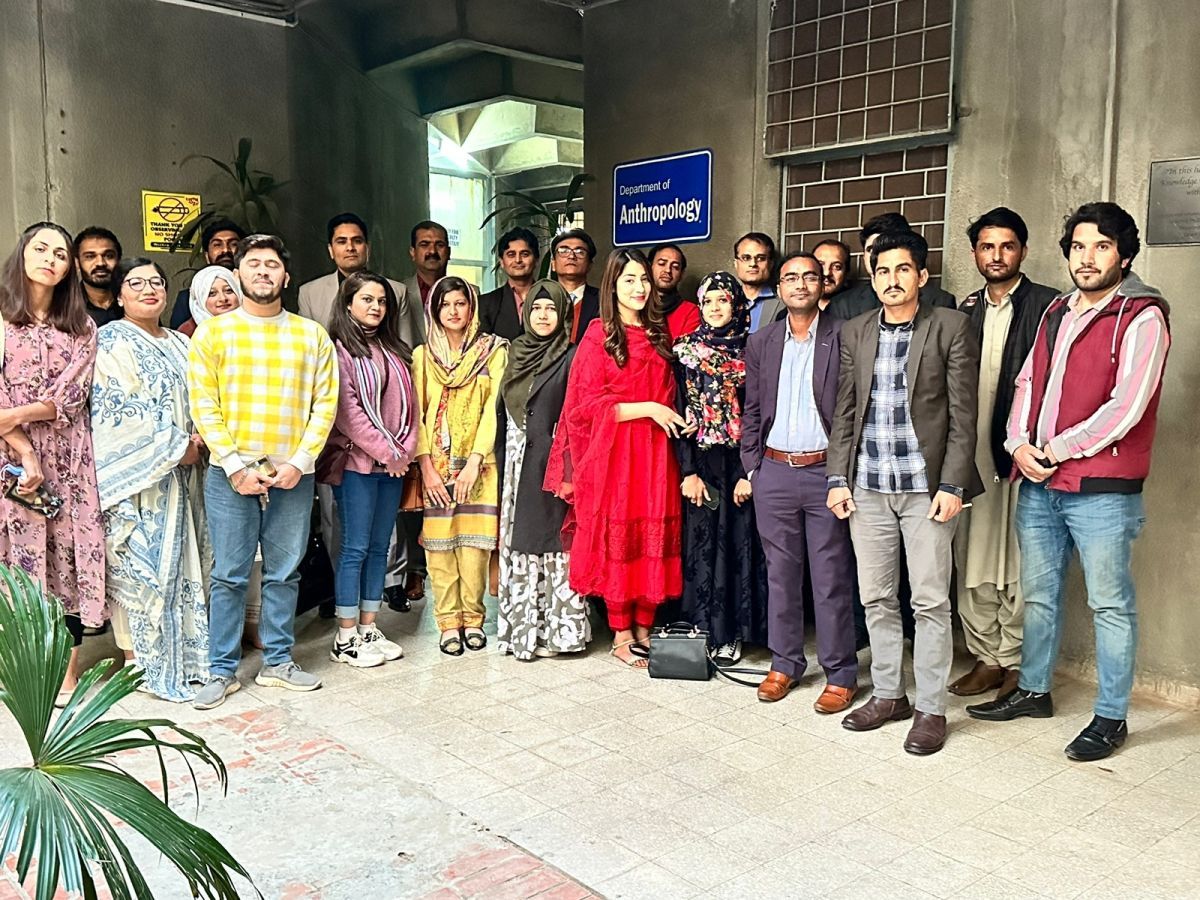A workshop on ‘Climate Change, Displacement and Disease’
Media
Image

Content
Health and Migration Research Network of EdCMA organised a two-day international workshop on ‘Climate Change, Displacement and Disease’ at Quaid-i-Azam University (QAU) Islamabad, Pakistan, on 19-20 December 2022. This workshop was organized to bring together anthropologists, social scientists and other experts of climate change, disaster, displacement, and health, in the backdrop of the emerging climate change related challenges such as the recent floods in Pakistan which caused displacement of millions of people and widespread problems of health. The workshop started with two keynote addresses by Dr Zafar Mirza, a former Special Advisor to Prime Minister on Health in Pakistan, and Professor Stephen M Lyon, the Dean of the Faculty of Arts and Sciences at Aga Khan University, Karachi, Pakistan. They set the tone for the workshop proceedings by highlighting the human cost of climate change related disasters and the role of anthropology and other social sciences in addressing problems of human health and wellbeing. This was followed by presentations from experts and practitioners from the fields of climate change, hydrology, public health, development, relief and rehabilitation, and media and communication. In the second keynote session, Dr Jeevan Sharma (University of Edinburgh) provided a comparative regional perspective on disaster and resilience in Nepal and Ms Amber Ajani (Aga Khan University) presented her findings on people-centred narratives in the climate change discourses in Pakistan. A number of early career scholars and doctoral students at QAU shared their research on recent floods and coping strategies in different areas of Pakistan.
The second day of the workshop started late due to electricity outage. The first panel had four paper presentations, three in-person and one online. The first two papers were on the Indus river system development discourses, and competing knowledges and frames of action for conservation and climate change impact mitigation among national and international policy makers and the riverine people of the area. The other two presentations covered recent flood mitigation and local political structures in Punjab and Chitral. All paper generated a number of questions from the workshop participants and resulted in a lively discussion on 'vulnerability’ and ‘hegemony’. The panel after lunch had two presentations including one on a radio channel which seems to be doing a good job of reaching out in remote areas to provide education and teachers' training in unconventional ways, especially during recent disasters when conventional schooling became inaccessible in these areas. It appears that the Covid crisis proved to be an opportunity for this small radio initiative to scale up and establish itself as a key provider of information and education not only in crises but also in normal times.
The final session of the workshop was on publishing in international journals. It was led by Professor Ian Harper (University of Edinburgh) remotely from Edinburgh. The session started nicely but then the electricity went out again and it came to an abrupt end. The discussion that followed was focused on the need to work harder on improving academic writing skills of students and early career colleagues to enable them to publish internationally.
The workshop ended with an emphasis on the need to take the spirit of this event forward and create more opportunities to talk to each other across institutions and geographical locations. The participants found the workshop useful for future collaborative research and knowledge exchange.
The workshop was co-convened by Dr Ayaz Qureshi (UoE) and Dr Inam Ullah Leghari (QAU)
